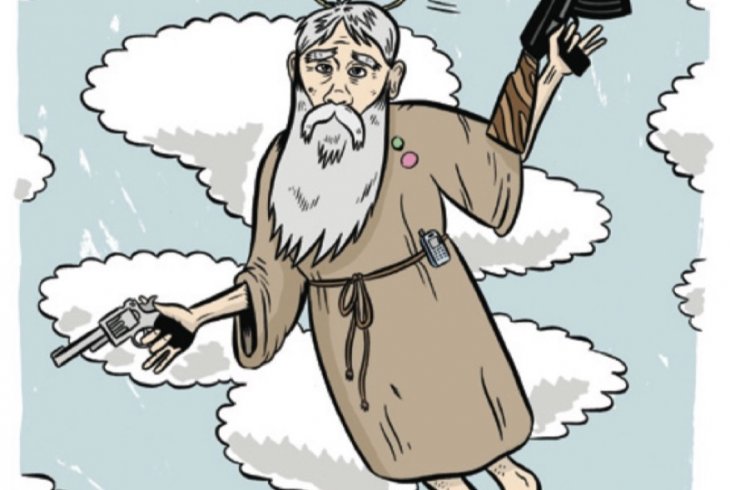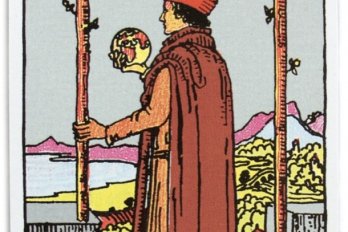
Years ago I embraced the “people” orthodoxy. Who didn’t? People kill people. It makes such simple sense. But in 1992, I was part of the bullet heterodoxy. I wasn’t with papp—People Against “People” People—I was part of Schtumpfhauer’s group. We did a lot of valuable work, a lot of published work. We destroyed Grimley’s thesis in our monograph, “People Who Don’t Need People: Rational Hermeticism on the Firing Range” (American Journal of Science, vol. 46, pp. 14–17). I don’t think he ever recovered. I don’t know if that’s why he shot himself; there wasn’t a note. Anyway, the “people” people are in the Dark Ages. Flat Earth. We used to joke that what the “people” people could use was a bullet.
By 1995, the bullet theory had pretty much taken over. At the ‘96 Summit in Lubbock, there was something approaching consensus (two shootings, neither of them fatal). But that fragile accord was shattered by the time of the Bogotá Conference in 2001. Part of it, of course, was the groundbreaking work that Jacques Derrida had been doing with triggers. With his widely quoted article, “Velocity and the Itch: The Hermeneutics of the Hair Trigger” (Guns & Ammo, vol. 72, pp. 1–91), he demonstrated conclusively that the trigger was both signified and signifier. This pretty much buried Charlton Heston’s old theory. That conference didn’t end well (sixteen shootings, three fatalities, four resignations).
Well, talk about your schisms. An internal poll taken two weeks later showed that 36 percent felt triggers killed people, 14 percent thought it was bullets, 8 percent voted guns, and a surprising 31 percent were still in the “people” camp; 4 percent thought it was Donald Rumsfeld, and the rest were either undecided or thought it was a “big can of whup-ass” that killed people. I don’t think our organization had ever been so fractured.
After that it was two years of vicious papers being published in journals that should re-examine their peer review process if you want my opinion. The nadir was probably Bubba Lunt’s article, “Derrida is a Moron” (American Journal of Psychiatry, vol. 91, p. 3). Derrida’s response “Am Not: The Solipsism of Others” (Soldier of Fortune, vol. xxi, pp. 4–86) did little to heal the wounds. Still, no one foresaw what came next.
I mean we all knew that inside the “people” camp there was a religious minority. They had been there for years. It was basically three guys in short-sleeved shirts and Poindexter haircuts from Salt Lake City. Frankly, we never thought they even owned any guns. For years, they had been quietly arguing that God made us in His image, therefore it was God who killed people. Even Bubba Lunt could have driven a Dodge Durango through a theological hole that big. No one even bothered to refute them. We just nodded, took their leaflets, and threw them away.
But while the gun, bullet, trigger, and “people” people were all duking it out, they came up the middle in a surprise move. Suddenly, they had a catchy acronym, gapp (God Against “People” People), a new spokesman (Ted Nugent), and long-sleeved shirts. They hired a Manhattan PR firm and commissioned a country-and-western song—“His Finger’s On Our Triggers (And It’s Itchier Than Hell)”—that went to number three.
All that talk of good and evil probably helped. As did the business of everyone’s all-powerful God “rainin’ death” on everyone else’s all-powerful God. So the timing was right. Their first published monograph, “God Kills People and You Could Be Next” (People, vol. 96, pp. 41–44), became a rallying cry.
The May conference in Mogadishu was essentially a gapp love-in. Their coup was a complete success without a shot fired, relatively speaking. You couldn’t have filled a phone booth with the gun and trigger people combined. I don’t even want to talk about the bullet people. The “people” people were down to six members, which, tragically, dropped to three after a gun-cleaning accident, and Derrida moved to France.
Me, I don’t know what’s next. Your whole life you hold to certain beliefs, then they’re taken away. Right now, I guess I’m what you’d call a drifter. Another guy just struggling to find some answers to questions that haven’t necessarily been asked. Another traveller on the highway of life, packing heat.


